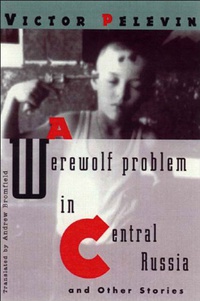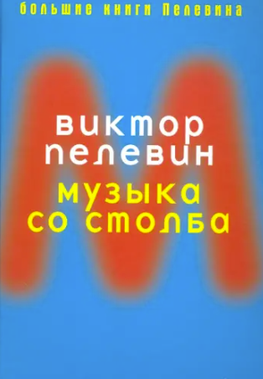Related Research Articles
Postmodern philosophy is a philosophical movement that arose in the second half of the 20th century as a critical response to assumptions allegedly present in modernist philosophical ideas regarding culture, identity, history, or language that were developed during the 18th-century Age of Enlightenment. Postmodernist thinkers developed concepts like différance, repetition, trace, and hyperreality to subvert "grand narratives", univocity of being, and epistemic certainty. Postmodern philosophy questions the importance of power relationships, personalization, and discourse in the "construction" of truth and world views. Many postmodernists appear to deny that an objective reality exists, and appear to deny that there are objective moral values.

Jean Baudrillard was a French sociologist and philosopher with an interest in cultural studies. He is best known for his analyses of media, contemporary culture, and technological communication, as well as his formulation of concepts such as hyperreality. Baudrillard wrote about diverse subjects, including consumerism, critique of economy, social history, aesthetics, Western foreign policy, and popular culture. Among his most well-known works are Seduction (1978), Simulacra and Simulation (1981), America (1986), and The Gulf War Did Not Take Place (1991). His work is frequently associated with postmodernism and specifically post-structuralism. Nevertheless, Baudrillard had also opposed post-structuralism, and had distanced himself from postmodernism.
Victor Olegovich Pelevin is a Russian fiction writer. His novels include Omon Ra (1992), The Life of Insects (1993), Chapayev and Void (1996), and Generation P (1999). He is a laureate of multiple literary awards including the Russian Little Booker Prize (1993) and the Russian National Bestseller (2004), the former for the short story collection The Blue Lantern (1991). In 2011 he was nominated for the Nobel prize in Literature. His books are multi-layered postmodernist (disputed) texts fusing elements of pop culture and esoteric philosophies while carrying conventions of the science fiction genre. Some critics relate his prose to the New sincerity literary movement.

S.N.U.F.F. is a science fiction novel by Russian writer Victor Pelevin published in 2011.
Éditions Galilée is a French publishing house in Paris, and was founded in 1971 by Michel Delorme. It specializes in philosophy, French literature, arts and human sciences. Focusing on the deconstructionist thought of Jacques Derrida, Galilée also publishes works on postmodernist thought.

Pineapple Water for the Fair Lady is a short story collection by Victor Pelevin, published in 2010 in Russia. The work is composed of two unequal parts: Gods and Mechanisms is the larger part, while Mechanisms and Gods shorter. The first part consists of two stories: Operation "Burning Bush" and The Anti-Aircraft Codes of Al Efesbi. The second part includes three stories: The Shadow Contemplator, Thuggee and Hotel of good incarnations.

Prince of Gosplan is a novella by Victor Pelevin, published in 1991 in Russia.

Blue Lantern is a short story collection by Victor Pelevin, published in 1991 in Russia. In 1994 it was published in English named Blue Lantern and Other Stories by New Directions Publishing. Named after the story "Blue Lantern" which was included in the collection.

A Werewolf Problem in Central Russia is a short story by Victor Pelevin, published in 1991 in Russian.
Vera Pavlovna's Ninth Dream is a short story by Victor Pelevin, published in 1991.

Blue Lantern is a short story by Victor Pelevin, published in 1991.
The Ontology of Childhood is a short story by Victor Pelevin, published in 1991.

The Tambourine of the Lower World is a short story by Victor Pelevin, published in 1993. The story gave its name to the first volume of the collected works of Victor Pelevin, published in 1996.

Music from the Pillar is a short story by Victor Pelevin, published in 1991.
The Reconstructor is a short story by Victor Pelevin, published in 1990.
Kreger’s Revelation is a short story by Victor Pelevin, published in 1991.
Sigmund in a Cafe is a short story by Victor Pelevin, published in 1993.
The Water Tower is a short story by Victor Pelevin, published in 1990.
Wind Search Record is a short story by Victor Pelevin, published in 2003.
The Guest at the Fest of Bon is a short story by Victor Pelevin, published in 2003.
References
- 1 2 Македонская критика французской мысли (сборник) скачать книгу Виктора Пелевина : скачать бесплатно fb2, txt, epub, pdf, rtf и без регистрации
- ↑ И.с, Заярная (2006). "2006. 04. 006. Мережинская А. Ю. Русский литературный постмодернизм: Худож. Специфика. Динамика развития. Актуал. Пробл. Изуч. - Киев: Логос, 2004. - 234 с". Социальные и гуманитарные науки. Отечественная и зарубежная литература. Сер. 7, Литературоведение: Реферативный журнал (4). ISSN 2219-8784.
- 1 2 А.ю, Мережинская (2006). ""Поздний" литературный постмодернизм: механизмы смены художественной парадигмы". Человек: Образ и сущность. Гуманитарные аспекты (1). ISSN 1728-9319.
- ↑ Вячеславовна, Орлова Ольга (2013). "Вечность пахнет нефтью как прецедентный текст современной культуры в интернет-дискурсе (часть 1)". Сибирский филологический журнал (1). ISSN 1813-7083.
- ↑ "Дмитрий Быков. Два пе. Петрушевская и Пелевин: певцы конца века (Рус.жизнь). Институт психологии РАН". www.ipras.ru. Retrieved 2021-03-09.
- ↑ Виктор Пелевин (интервью) // из сборника ОДИННАДЦАТЬ БЕСЕД О СОВРЕМЕННОЙ РУССКОЙ ПРОЗЕ - ru_pelevin: сообщество читателей
- ↑ Книга "Македонская критика французской мысли" 978-5-699-56905-2 купить, цена, заказ, оптом, отзывы | Books.